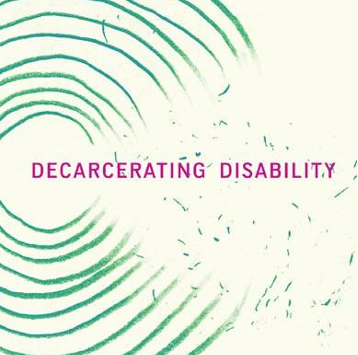
The Massachusetts Daily Collegian
Ben-Moshe links the studies of prison abolition and disabilities in her book.
On Wednesday, the third event of the Disability Identity, Culture and Community Speaker Series was held online. This series is part of the Campus Climate Improvement Grant, which is sponsored by the Office of Equity and Inclusion. These grants, which range from $250 to $2,500, are to aid community-supported projects to create a more inclusive campus.
The event, led by disability scholar and assistant professor of criminology, law and justice at the University of Illinois at Chicago Dr. Liat Ben-Moshe, was a discussion-based talk on her 2020 book “Decarcerating Disability: Deinstitutionalization and Prison Abolition”.
Ben-Moshe studies prison abolition and disability, and how they are interconnected. The event was moderated by assistant professor in the W.E.B. Du Bois Department of Afro-American Studies Dr. Toussaint Losier .
While attendees were able to sit in and listen to the presentation, transcriptions, closed captioning and ASL interpreters were provided during the event as well. At the start of the event, presenters provided descriptions of themselves. After the discussion, attendees were able to ask questions in a Q&A style section. Campus groups involved included the Disability Culture Club and Alliance Against Ableism.
Public policy graduate student and disability culture club member Griffin Leistinger said that a lot of the work with the cultural center “has really been blossoming.”
“I got involved in part because of this campus climate improvement grant, and the speaker series going on here,” Leistinger said.
The event was hosted by history PhD student and lead planner of the campus climate grant event planning committee, Kimberly Enderle.
“There’s a new conversation going on that has not happened on campus,” Enderle said. “There’s a lot of support, there’s a lot of recognition for the first time that this is something.”
Ben-Moshe discussed topics from her book that covered deinstitutionalization, decarceration, disability and prison abolition. The online event also provided insight on discourses in relation to incarceration and disability, such as: mental health work, reform and abolition, and mental health advocacy.
In relation to deinstitutionalization, she introduced the concept through an example on the closure of many psychiatric hospitals and mental institutions in recent years.
“Systems of confinement such as psychiatric hospitals, which are institutionalized and funded federally, can further confinement,” said Ben-Moshe.
According to the University of Southern California Schaeffer Center for Health Policy & Economics, Massachusetts has the “highest per capita number of mental health care providers.” Yet shortages still exist in the state, particularly in correctional facilities.
“Deinstitutionalization is not just a process, but a logic, a framework, a movement,” she explained.
According to Ben-Moshe, deinstitutionalization could involve moving people with psychiatric and intellectual disabilities from state institutions or hospitals, to community living. “This has been a major policy trend in most US states,” she said.
However, Ben-Moshe explained there have been groups that have shown resistance to closure, such as employees of the facilities and unions, due to “potential job loss”.
The criminology professor also highlighted how the fear of job loss in relation to the closure of facilities, is connected to the economic structure of these facilities, and the larger system that they are a part of.
“Discourses of cost effectiveness or literal corporations raking in profits from incarceration are important to have,” Ben-Moshe said.
Ben-Moshe gave an overview on the prison-industrial complex. Ben-Moshe said, “employment of incarcerated individuals is provided for the human service industry.” This system includes the private sector of nursing homes, group homes, and for-profit psychiatric hospitals.
“Disabled people who are incarcerated are seen as a commodity,” she said. “People of color, and disabled people of color especially.”
Ben-Moshe went on to speak about the connections she has been studying between prison and disability. Factors such as lack of medical equipment, no sanctioned access to sexuality or reproductive health care, strip searches, or closed wards with poor air quality can all lead to serious health issues. With COVID-19, toxic conditions and materials can worsen in incarcerated areas.
As one of the discussion objectives, she mentioned that she wanted to “facilitate dialogue and collaboration amongst disability scholars and activists, as well as anti-prison scholars and activists.”
Nearing the end of the event, Ben-Moshe challenged the notion that people with disabilities “need special or extra protection, in ways that often expand their incarceration.”
“Incarceration can happen in varied locations,” she said, explaining that institutions such as nursing homes and psychiatric wards can serve as spaces for incarceration as well.
She also emphasized how important it is to learn from mad and disability movements and what their critiques of incarceration are, and how disability should be viewed as an identity.
“Disability is a way to view the world, it’s a lived experience. It has a culture, it has a history. Disability is a politicized identity,” she said.
According to the Invisible Disabilities Association, 70% of people have disabilities that are invisible, such as mental health problems and intellectual disabilities.
“It’s different from many other identities where it is not always an identity that one wears on their sleeve,” Digital Accessibility and Assistive Technology Specialist Samm Delorey said.
The next event in the “Disability Identity, Culture and Community Speaker Series” will be a panel discussion on disability activism at the university on April 5, 2022 at 7 p.m.
“We’re really building amazing resources at UMass that we haven’t seen before. And it feels really powerful and really encouraging for disabled people like myself,” Delorey said.
Original Article posted on The Massachusetts Daily Collegian.